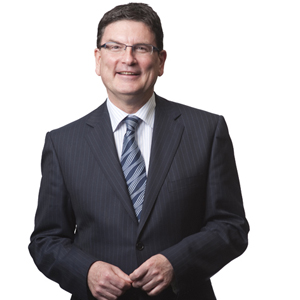Rage against the billing machine
A former managing partner has told Lawyers Weekly that firms are turning lawyers into “billing machines”, and that is possibly contributing to depression.

A former managing partner has told Lawyers Weekly that firms are turning lawyers into “billing machines”, and that is possibly contributing to depression.
To continue reading the rest of this article, please log in.
Create free account to get unlimited news articles and more!
Legal consultant Philip Gleed (pictured) spoke to Lawyers Weekly ahead of a Lawyers’ Mental Health Forum in Melbourne on Tuesday 7 May.
Gleed, a former managing partner of Rigby Cooke and Mason Sier Turnbull, has been working within the legal profession for more than 30 years. He said that the Australian legal sector has “largely moved from being a profession to a business or industry”, and that has placed a heavy burden on lawyers to bill more.
“What has crept into the profession over the past decade or more is that we feel we need to be in the office from seven in the morning to well after seven at night,” said Gleed, who has done some consultancy work for the organisers of the conference, the insurance brokerage firm Jardine Lloyd Thompson (JLT). “The work-life balance you should get is not there.”
With a few notable exceptions, timesheets are still the most popular way to measure a lawyer’s productivity at private practice firms. Gleed has noticed that the billable hour and a law firm’s remuneration system have contributed to lawyers moving away from being a trusted adviser to seeing themselves as a “billing machine or salesperson”.
“When you are spending time billing a lot, being a salesman and being a billing machine, it puts you under enormous pressure,” said Gleed. “I am not a doctor but I suspect that is what causes the disaffection with the law, the burnout and, ultimately, the depression.”
Gleed is the latest legal consultant and former managing partner to publicly express concern at modern trends within the legal profession and the effect they are having on lawyers.
The former managing partner of Maddocks and Middletons prior to its merger with K&L Gates, John Chisholm, wrote an Opinion piece for Lawyers Weekly last year that called for the billable hour to be scrapped.
“Recording time, especially in six-minute units, serves no valid purpose whatsoever in any professional firm,” said Chisholm. “Time-based billing is but a symptom of the time-recording ‘illness’ that many in our profession have become addicted to, and it is time recording that is the real cancer in our profession.”
You can push back
The arrival of global law firms has made what was a competitive market in Australia even more concentrated.
Particularly with regard to transactional work, law firms of all sizes have been prepared to slash rates and offer alternate free arrangements.
Gleed acknowledged that, in the present climate, law firms are often grateful for any work that comes through the door. However, he stressed this work should not be done at the expense of the health and wellbeing of staff.
“I think they do have the clout to do that [push back when a client sets an unrealistic deadline], depending on what workflow they have,” he said.
Looking at the modern legal landscape, Gleed noted that young lawyers entering the profession today have a much tougher time trying to stay healthy and see friends and family.
“The thing I would say is unacceptable is pushing younger lawyers to make those sorts of daily sacrifices – without the balance of being able to regularly leave the office at a reasonable hour.”
Gleed noted that allowing such a workplace culture to develop is not something that firm leaders should encourage or allow to prevail.
“I have contemporaries who openly tell people to go home but, on the reverse side of the equation, I know of firms where a younger lawyer will say to their supervising senior associate or partner ‘is there anything else you want me to do?’ at 6pm – and that person will push that work off to them and expect them to stay until whatever hour it is completed.”
“Those in firm leadership positions need to show strong leadership on that issue, and if that means rearranging workloads or schedules for lawyers, deadlines with clients or sacrificing a degree of profit ... then I think you need to consider that as a firm leader.”
The JLT Mental Health Forum in Melbourne on Tuesday (7 May) is free for attendees.
Keynote speakers include Dr Peter Cotton, a clinical psychologist, and Laura Cropley, the national OHS adviser at Clayton Utz.






